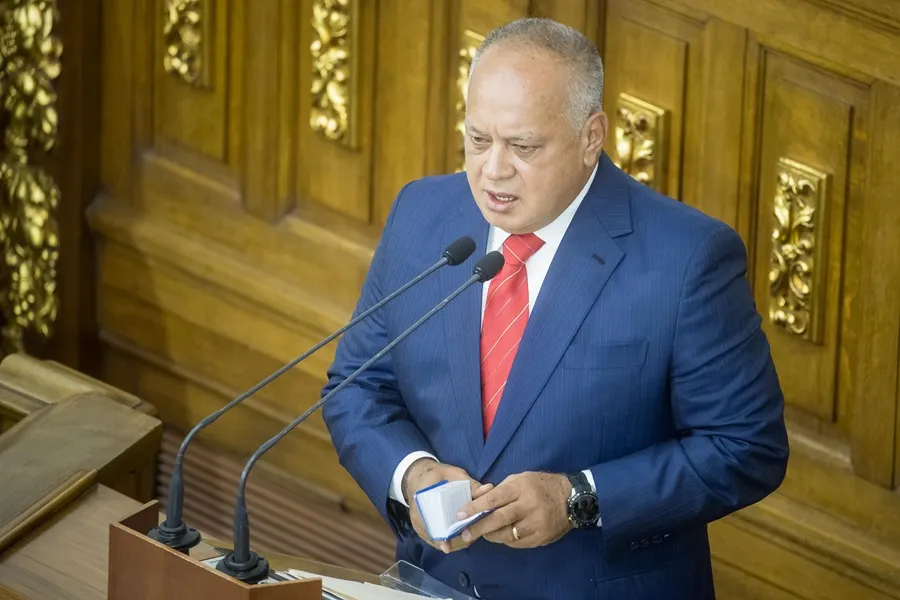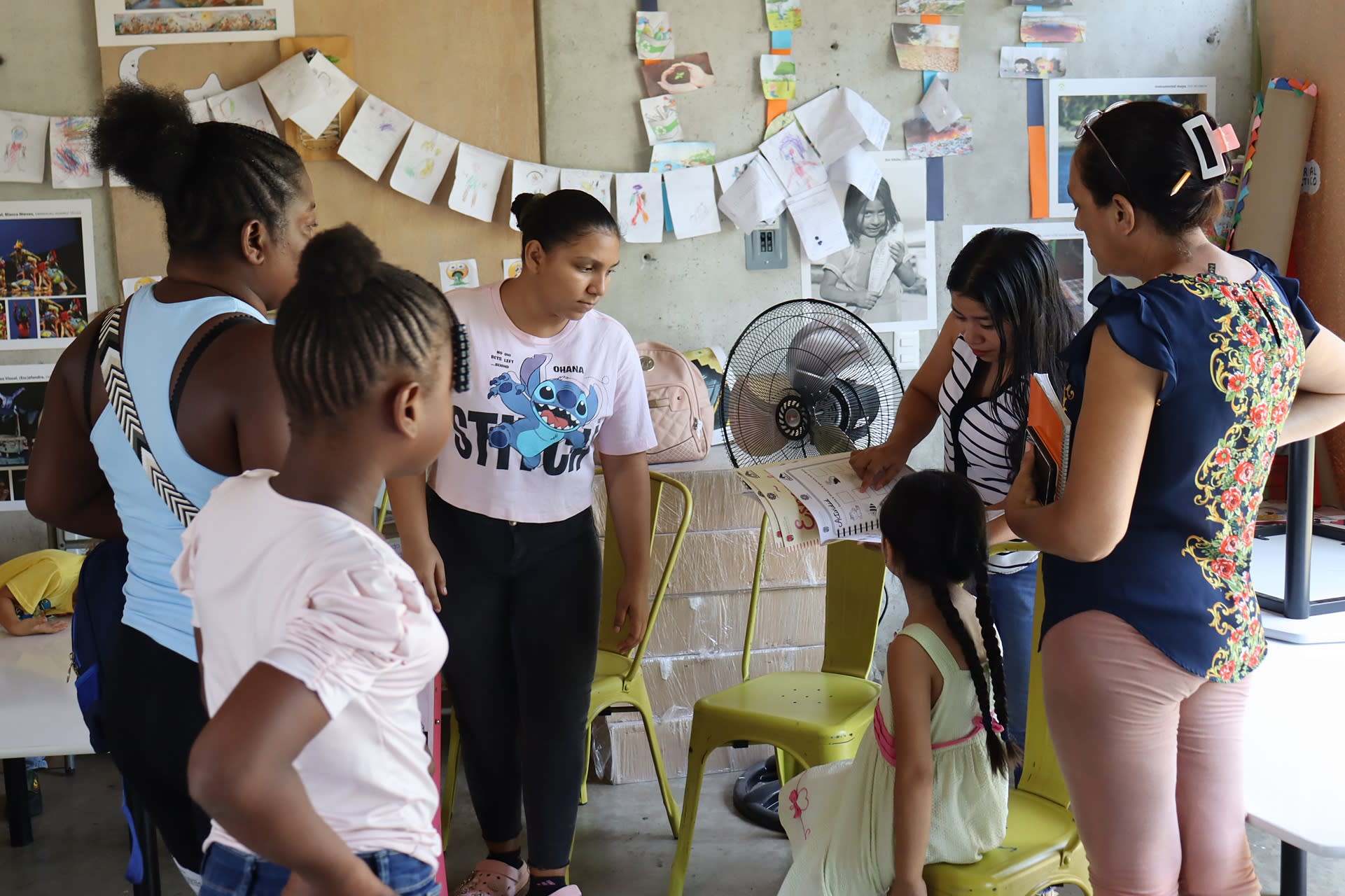International
Chile will resort to the ICC if Diosdado Cabello’s participation in a crime is confirmed

The Government of Chile will appeal to the International Criminal Court (ICC) if the participation of the number two of Chavismo, Diosdado Cabello, in the murder almost a year ago of the former Venezuelan soldier who took asylum in Chile, Ronald Ojeda, is confirmed, the Chilean Minister of the Interior, Carolina Tohá, said on Thursday.
“They are preliminary antecedents because the investigation is still ongoing, but we take them with all their seriousness because they are relevant and repeated. If the investigation confirms them, the State of Chile will not let it pass,” Tohá said in statements to the media.
“There will be many definitions to take, but one of the things we are clear about is that we will resort to the International Criminal Court,” also known as the International Criminal Court and based in The Hague (Netherlands), the minister added.
The announcement comes after the national prosecutor of Chile, Ángel Valencia, confirmed hours earlier to a local radio that one of the witnesses of the crime points out that “the order and payment would have come from Diosdado Cabello.”
Valencia’s statements thus support the thesis that the prosecutor in charge of the case, Héctor Barros, has maintained since the early stages of the investigation and that links officials of Nicolás Maduro and the transnational organization Tren de Aragua with the murder of Ojeda last February.
Ojeda, a Chavista dissident and political asylum in Chile, was kidnapped on February 21, 2024 at his home in Santiago and ten days later they appeared in a town in the capital, buried under a cement block.
“The State of Chile has shown how seriously it takes these issues and the persistence with which we work so that justice works and there is no impunity, even when there are so many obstacles as there have been in this case,” Tohá concluded.
The Chilean Prosecutor’s Office reported on Wednesday the arrest of a man belonging to the group ‘Los Piratas’, a faction of the Aragua Train that is “directly related” to the homicide of Ojeda.
The Aragua Train, born in the Venezuelan prison of Tocorón, has spread to Colombia, Peru, Bolivia and Chile, where the authorities accuse it of committing numerous crimes, such as drug trafficking, extortion, kidnappings and homicides.
For the crime of Ojeda there are also at least two other people arrested, a 17-year-old Venezuelan and one of the main perpetrators of the crime.
Central America
Trump Administration Asks Supreme Court to Block Return of Deported Salvadoran

The Trump administration on Monday asked the U.S. Supreme Court to block a lower court order requiring the return of a Salvadoran migrant who was mistakenly sent to a maximum-security prison in El Salvador, despite having legal protection from deportation.
The U.S. government has until Monday to bring Kilmer Armado Ábrego García back to the United States, as ordered by Judge Paula Xinis in a Maryland court.
According to The Washington Post, the administration argues it lacks authority to comply because Ábrego García is currently in Salvadoran custody.
The U.S. had appealed Judge Xinis’ ruling to the Fourth Circuit Court of Appeals, but the court declined to act immediately—prompting the administration to take the case to the Supreme Court. In its filing, the government stated that “the Constitution entrusts the President, not federal district courts, with the conduct of foreign diplomacy and the protection of the nation from foreign terrorists, including through deportation.”
Ábrego García, a resident of Prince George’s County, Maryland, and married to a U.S. citizen, came under scrutiny in 2019 after an informant claimed he was a member of the MS-13 gang (Mara Salvatrucha).
Although he was initially slated for deportation, a judge later granted him a stay of removal after he requested asylum, according to the lawsuit.
Nevertheless, U.S. Immigration and Customs Enforcement (ICE) detained him on March 12, claiming his status had changed, and sent him to a detention center in Texas.
International
Teachers in Southern Mexico Bring Education to Stranded Migrant Children

Teachers in southern Mexico have created a program to provide classes for migrant children stranded in the region, following a year-over-year increase of over 70% in irregular migration among minors—many of whom lose months or even years of education during their journey toward North America.
In Tapachula, the largest Mexican city bordering Central America, three teachers offer preschool, elementary, and secondary education through the Chiapas State Migrant Education Program (Pemch).
This initiative has been replicated in key municipalities across Chiapas, including San Cristóbal de Las Casas, the capital Tuxtla Gutiérrez, Palenque, Comitán, and other border towns. Currently, there are around 1,345 migrant students and a total of 35 teachers working across farms and shelters.
Pablo Arriaga Velázquez, a teacher with the migrant education program in Tapachula, told EFE that the project was born in response to the large number of migrant minors, as enrolling them in regular schools is often difficult.
Central America
Mulino and Orsi Highlight Shared Vision After Panama Joins Mercosur as Associate State

The Presidents of Panama, José Raúl Mulino, and Uruguay, Yamandú Orsi, highlighted on Monday the path of integration both countries have undertaken in areas such as trade and the defense of democracy, following a meeting held at the Panamanian government headquarters.
In a brief statement to the press, both leaders emphasized that Panama and Uruguay share many values and are working together across different sectors. They also underlined a renewed connection following Panama’s accession last December to the Southern Common Market (Mercosur) as an Associated State.
“Panama has begun a new era of looking southward, seeking opportunities not only for work, business, and friendship, but also for regional integration in a positive sense. Today, I believe we have taken a decisive step in that direction,” said President Mulino.
The Panamanian leader stressed that his country and Uruguay “have much in common” and share “important values in terms of democracy, respect for institutions, and the rule of law—principles that must always be strengthened, no matter how much effort it takes.”
-

 Internacionales2 days ago
Internacionales2 days agoErik Prince Backs Ecuador’s Daniel Noboa in Fight Against Crime and “Narcoterrorism”
-

 Central America4 days ago
Central America4 days agoPanama’s former president Martinelli claims political enemies tried to kill him
-

 Central America2 days ago
Central America2 days agoGuatemala’s Legal Chief Shot Dead in Parking Lot: Investigation Underway
-

 International4 days ago
International4 days agoJavier Milei vows to work ‘side by side’ with the U.S. on trade rules
-

 Central America15 hours ago
Central America15 hours agoHonduras Hosts CELAC Summit Amid Regional Concern Over U.S. Deportations
-

 International15 hours ago
International15 hours agoTeachers in Southern Mexico Bring Education to Stranded Migrant Children
-

 Central America15 hours ago
Central America15 hours agoMulino and Orsi Highlight Shared Vision After Panama Joins Mercosur as Associate State
-

 Central America15 hours ago
Central America15 hours agoTrump Administration Asks Supreme Court to Block Return of Deported Salvadoran















